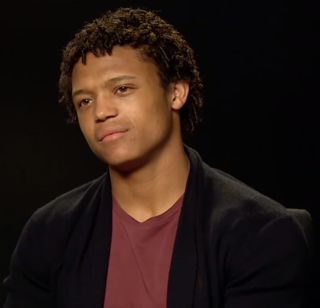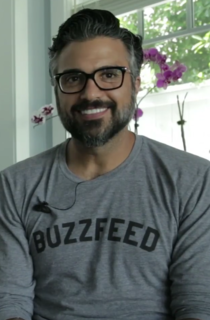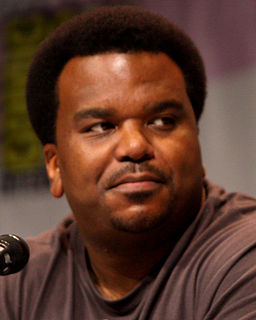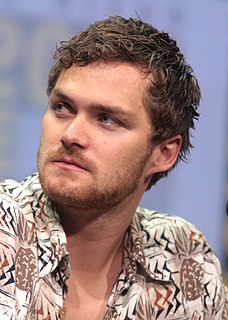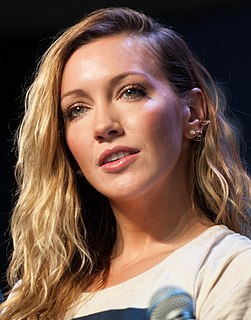A Quote by Christopher Lloyd
When I come onto a show where I haven't met any actors, I try to zero in on the script and what's expected of the character I'm going to play and hopefully keep my focus on that, and friendships develop from that.
Related Quotes
When you try to be true to the script, changes occur. A script is there to show us a certain direction. But when you actually have the actors in and you start shooting the movie, you have the actor say a line and it doesn't sound right so you change it and make it different. It's the script that gives birth to these changes and the more you try to stay true to the script, the more that happens.
The script that I fell in love with and adored was 'Jane the Virgin'... but every line in the pilot was essentially, 'Why did you keep my daughter a secret all of these years?' I didn't know any direction my character was going - was it going to be a dramatic character, a comedic character? - I didn't know.
Any script, even like The Founder, if it's something that I imagine myself playing this character or that character - any of the characters, basically - how do we flesh these characters out to be good enough to have amazing actors that come in that make it really difficult for them to say no? Even though I'm not right for any of those parts, that's just kind of how we go about it.
One of the good thing about theater in the states, is that the playwright we do have a say, especially in the beginning, when the play is being discussed around the table. We talk about the play, and the actors listen, and there have been cases, you disagree on something... I mean, actors don't usually tell you what they're going to do, they do it. Of course, you try to speak with the director and say, "Is there any way you can bring this actor to do something different?" You try as much as you can, but then, you also have to be open to interpretation.
I like to imagine a person's psyche to be like a boardinghouse full of characters. The ones who show up regularly and who habitually follow the house rules may not have met other long-term residents who stay behind closed doors, or who only appear at night. An adequate theory of character must make room for character actors, for the stuntmen and animal handlers, for all the figures who play bit parts and produce unexpected acts. They often make the show fateful, or tragic, or farcically absurd.
I think being on a show like Game of Thrones for six years, I've gone through that whole hype thing, and I know that it doesn't do you any good creatively. You've just got to stay focused on the character and the script and your work. As humble and as grateful as I am for so many people watching it, and that there's so much love and attention, it's best for my own sanity and creativeness to try and keep that at bay.
When you're doing a play, you're onstage, there's no stopping or starting, there's no stopping to reposition for the camera or have a check done. You're there 'till the end of the show. What that gives you is a great gift, which is to command the audience, and you get to play with your script and your fellow actors. Every night, it's different. Hopefully it goes well and you get a great response. But the technique that you have to have on film or television is so delicate. It's fine-tuning. That is very different from being onstage, but they both have important skill sets.

